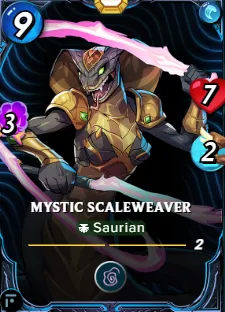
Frontier Mode & Foundation Cards: A Strategic Overview
With Frontier Mode now live, we’re getting a clearer look at how Foundation Cards function in both gameplay and market dynamics. This post outlines the role they play, their economic implications, and where they fit (or don’t) in the broader meta.
What Are Foundation Cards?
Foundation Cards are a new class introduced with Frontier Mode, designed to support early progression and lower the entry barrier. Key characteristics include:
Freely Earned: Acquired through gameplay within Frontier.
Deliberately Weaker: Statistically inferior to standard set cards.
Silver-Level Cap: Cannot be upgraded beyond Silver-level thresholds.
Globally Usable: Playable in Modern, Wild, and Frontier — always at Silver cap.
Strategic & Economic Implications
1: Low Competitive Utility Above Silver
Foundation Cards are out scaled quickly in higher leagues. Their permanent Silver cap makes them a poor fit in Gold, Diamond, or Champion-level gameplay, where stat advantages are critical.
2: No Undercutting Meta Like Chaos Legion Did
During the Chaos Legion era, cards were priced far lower than those from Untamed — but offered similar competitive value. This price-performance parity caused many players to skip investing in the more expensive older set altogether.
The same dynamic occurred later between Chaos Legion and Rebellion, temporarily suppressing demand for Rebellion cards.
Foundation Cards will not cause this effect — they are intentionally weaker, and not viable long-term, so they won't cannibalize demand for Modern/Wild sets. Instead, they serve as low-power, low-cost entry options for new or budget-constrained players.
3: Oversupply and Price Decline Likely
Being freely earned and capped in power, Foundation Cards are expected to saturate the market. Without long-term utility, demand will be limited. Prices will likely fall quickly after the initial rollout period.
4: Best-Fit Use Cases: Onboarding, Silver, Frontier
Their intended use cases are clear:
New player onboarding
Frontier Mode, where power is capped
Silver League tournaments
They fulfill a niche but important role: enabling participation without requiring a financial commitment.
Niche and Special-Use Scenarios
Some Foundation Cards may see value in specific edge cases:
Cards with key abilities (e.g., utility or disruption) that remain impactful at Silver.
Low-mana units that fit into restrictive rulesets or tightly tuned Silver builds.
Special events or Frontier-focused tournaments that temporarily elevate their relevance.
But these will be exceptions, not the rule.
Final Thoughts
Foundation Cards are not a long-term competitive asset — and they’re not meant to be. Unlike Chaos Legion, which disrupted the market by offering full-power cards at a deep discount, Foundation Cards are intentionally limited to support onboarding and lower-tier play.
They reduce friction for new users and support ecosystem health — but they won’t disrupt the meta or market like a main set ever could.
My Opinion: Is This a Good Implementation?
Overall, yes — I believe this is a smart and healthy implementation for the game’s long-term sustainability.
By clearly separating free progression tools from competitive assets, Foundation Cards help reduce the onboarding barrier without diluting the value of main-set cards. It avoids the mistakes of past cycles, where budget sets like Chaos Legion unintentionally devalued entire card ecosystems.
Foundation Cards won’t appeal to collectors or high-level competitors, and that’s by design. Their primary strength is in providing structure for a new player journey — something the game has historically lacked. Frontier Mode paired with Foundation Cards creates a proper “entry lane” where players can learn mechanics, build confidence, and explore the ecosystem without facing a paywall or an overwhelming meta.
In short:
Good for new players
Non-threatening to card investors
Helps protect long-term ecosystem balance
If managed correctly, this system can bridge the gap between free-to-play entry and high-stakes competition — something that’s been missing for a while.